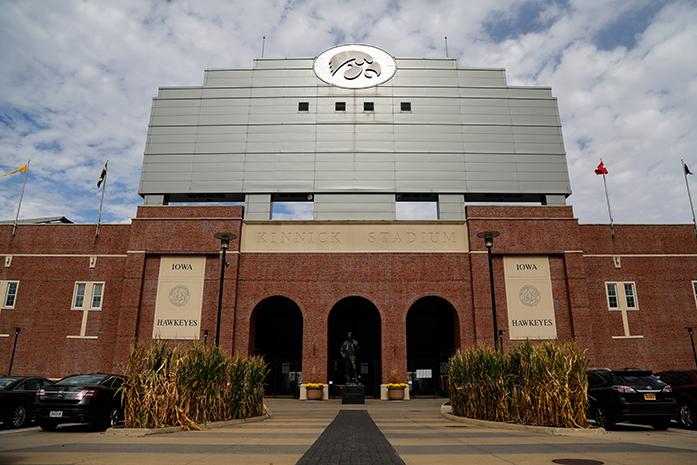by Joe Lane
Last week, the University of Iowa announced its plan to compensate for the $8 million reduction in state appropriations caused by a budget shortfall. The plan — which was covered by The Daily Iowan and addressed in a letter sent to students affected by it — eliminates a series of scholarships for current and incoming students.
The affected scholarships include, but are not limited to, the Iowa Heritage Scholarship, Iowa Heritage Transfer, and Iowa Community College 2+2. President Bruce Harreld announced at a subcommittee meeting last week that the cuts will affect 2,440 resident undergraduate students. Just this week, a class-action lawsuit was organized as students and their parents prepare to sue the university. According to the lawsuit’s Facebook page, the argument is that the cuts broke both the Fifth and 14th Amendments.
Understandably, outcry across social media has been swift and harsh. UI alumni, current students, community members, and parents did not hold back in their criticism of Harreld, the state Board of Regents, and the state Legislature. One criticism, however, was heard loud and clear no matter where you looked: “Why can’t this money come from athletics?”
This is a flawed argument and does little to prove that the commenter knows what he or she is talking about. The argument, for example, that money should simply be transferred from Kirk Ferentz’s salary or the new Kinnick Stadium renovations to academic scholarships is incomplete.
First of all, as the DI’s Marissa Payne pointed out in October 2016, funds for athletics programs and academics at the University of Iowa are separate. Some colleges, such as LSU, have transfer policies designed to contribute funds from athletics to academics. It is unlikely that such a system would be set up at the UI because of the economic impact of athletics and the difficulty of setting up such a system.
As a point of reference, the latest economic information on Hawkeyesports.com indicates that the effect of Hawkeye football is greater than $100 million.
The other argument that is common on social media is against the upcoming renovations to Kinnick Stadium. The renovations are primarily being funded by sources that could not be transferred to student scholarships. For example, a large portion of the money needed for the project comes from a multimillion-dollar cash influx caused by a restructuring of the Big Ten’s TV deal with numerous networks, including Fox and ESPN, according to a number of sources. The restructuring will provide tens of millions of dollars in additional revenue for the UI Athletics Department and the other Big Ten schools, as well.
Furthermore, much of the other funding will come from sizable donations. These donations are made to the Athletics Department with precise instructions for the money to be used by the department on specific facilities and functions. Transferring this money to other purposes would be unethical at best.
It seems that athletics and other programs on our campus are ever at odds. Whether that be the arts, financial aid, or any other area, many believe that athletics are put on a pedestal while other departments suffer.
The reality, however, is that the athletics program does a lot to support this university, whether that be as a recruiting tool or in the form of real dollars (such as the $9 million the department provided for the Campus Recreation & Wellness Center). Perhaps the Athletics Department could step in to help out in other ways, but the answer to every problem on this campus cannot fall on athletics.



